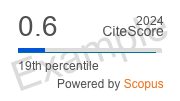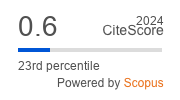The use of CO2 to create an optical window during intravascular optical coherence tomography in a patient with an allergic reaction to iodine contrast
https://doi.org/10.29001/2073-8552-2022-37-2-129-133
Abstract
A necessary condition for obtaining a high-quality image with optical coherence tomography (OCT) is the displacement of blood from the visualized segment of the vessel to provide a transparent medium between the vascular wall and the photo detector. Traditionally, liquid iodine-containing contrast is used for this, which can be dangerous in patients with iodine allergy or renal insufficiency. We present a clinical case of successful OCT using CO2 in a patient with anaphylactic reaction to iodine-containing contrast. OCT was performed to monitor the safety of radiofrequency renal denervation. CO2 was injected as standard into a guide catheter located in the renal artery. With the help of CO2, it was possible to effectively displace blood from the renal artery and obtain high-quality OCT images of the vascular wall microstructure.
About the Authors
M. G. TarasovRussian Federation
Mikhail G. Tarasov, Cand. Sci. (Med.), Research Scientist, Department of Interventional Arrhythmology
111a, Kievskaya str., Tomsk, 634012, Russian Federation
S. E. Pekarskiy
Russian Federation
Stanislav E. Pekarskiy, Leading Research Scientist, Department of Interventional Arrhythmology
111a, Kievskaya str., Tomsk, 634012, Russian Federation
A. E. Baev
Russian Federation
Andrei E. Baev, Cand. Sci. (Med.), Chief of the Department of Invasive Cardiology
111a, Kievskaya str., Tomsk, 634012, Russian Federation
E. S. Gergert
Russian Federation
Egor S. Gergert, Doctor for Endovascular Diagnostics and Treatment, Department of Invasive Cardiology
111a, Kievskaya str., Tomsk, 634012, Russian Federation
References
1. Lowe H.C., Narula J., Fujimoto J.G., Jang I.K. Intracoronary optical diagnostics current status, limitations, and potential. JACC Cardiovasc. Interv. 2011;4(12):1257–1270. DOI: 10.1016/j.jcin.2011.08.015.
2. Gutierrez-Chico J.L., Alegria-Barrero E., Teijeiro-Mestre R., Chan P.H., Tsujioka H., de Silva R. et al. Optical coherence tomography: From research to practice. Eur. Heart J. Cardiovasc. Imaging. 2012;13(5):370–384. DOI: 10.1093/ehjci/jes025.
3. Kandzari D.E., Bohm M., Mahfoud F., Townsend R.R., Weber M.A., Pocock S. et al. Effect of renal denervation on blood pressure in the presence of antihypertensive drugs: 6-month efficacy and safety results from the SPYRAL HTN-ON MED proof-of-concept randomised trial. Lancet. 2018;391(10137):2346–2355. DOI: 10.1016/S0140-6736(18)30951-6.
4. Roleder T., Skowerski M., Wiecek A., Adamczak M., Czerwienska B., Wanha W. et al. Long-term follow-up of renal arteries after radio-frequency catheter-based denervation using optical coherence tomography and angiography. Int. J. Cardiovasc. Imaging. 2016;32(6):855–862. DOI: 10.1007/s10554-016-0853-9.
5. Cho K.J. Carbon dioxide angiography: Scientific principles and practice. Vasc. Specialist Int. 2015;31(3):67–80. DOI: 10.5758/vsi.2015.31.3.67.
Review
For citations:
Tarasov M.G., Pekarskiy S.E., Baev A.E., Gergert E.S. The use of CO2 to create an optical window during intravascular optical coherence tomography in a patient with an allergic reaction to iodine contrast. Siberian Journal of Clinical and Experimental Medicine. 2022;37(2):129-133. (In Russ.) https://doi.org/10.29001/2073-8552-2022-37-2-129-133





.png)





























